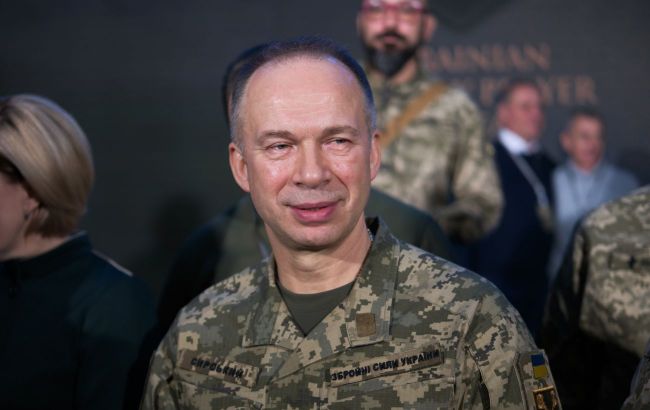Two months of DeepStrike trigger major fuel crisis in Russia, says Ukraine's army chief
 Photo: Oleksandr Syrskyi, Commander-in-Chief of the Armed Forces of Ukraine (Vitalii Nosach, RBC-Ukraine)
Photo: Oleksandr Syrskyi, Commander-in-Chief of the Armed Forces of Ukraine (Vitalii Nosach, RBC-Ukraine)
Commander-in-Chief of the Armed Forces of Ukraine, Oleksandr Syrskyi, in a conversation with journalists, states that strikes on Russia's fuel infrastructure have caused logistics and supply problems for its army, directly affecting the enemy’s ability to conduct active operations.
According to him, units carrying out long-range strikes have already achieved noticeable results against the enemy.
What DeepStrike is and how it works
"This is our strong point, an effective program that has already proven its results. These are units of the Armed Forces' unmanned systems that carry out long-range strikes," Syrskyi said.
He added that the system allows hitting important targets at long distances and is continuously being improved.
Impact of strikes on Russia's military-industrial potential
"In just under two months, 85 key targets on enemy territory have been hit. Of these, 33 were military targets: bases, depots, arsenals, airfields, and aircraft on the ground. The remaining 52 were military-industrial targets: factories producing weapons, ammunition, warheads, engines, rocket fuel, drones - everything used against us daily," said the Commander-in-Chief.
Syrskyi emphasized that the strikes have had a particularly strong effect on facilities producing fuel and components for missile technology.
Fuel crisis in Russia and consequences
"You see the result - a fuel crisis in Russia, which directly affects logistics and the supply of its army. The enemy's military-industrial capabilities have been significantly reduced - and we see this on the battlefield," Syrskyi noted.
He added that strikes on the fuel sector have complicated enemy operations and undermined its capabilities at the front.
Operational consequences for Russian navy and air force
"This has forced the Russian fleet to hide in the Novorossiysk base, coming out only briefly for missile strikes before returning to shelters. It has also forced the enemy to move tactical aviation far from the frontline," he added.
Syrskyi reported that losing access to fuel changes the operational behavior of Russian forces and reduces their mobility.
DeepStrike scaling and further development
"That’s why we continue to expand and scale the units carrying out DeepStrike. At the same time, we are improving their operational system and command structure to achieve maximum effectiveness," the Commander-in-Chief concluded.
He confirmed plans to develop long-range strike capabilities further, improving their accuracy and coordination.
Strikes on refineries
In the summer of 2025, Ukraine resumed strikes on Russian refineries and oil pipelines. This came after Russia violated an unannounced moratorium on mutual strikes against energy facilities in June.
Ukraine has already knocked out about 20% of Russia's oil refining capacity, causing a fuel crisis in several regions of the aggressor country.

